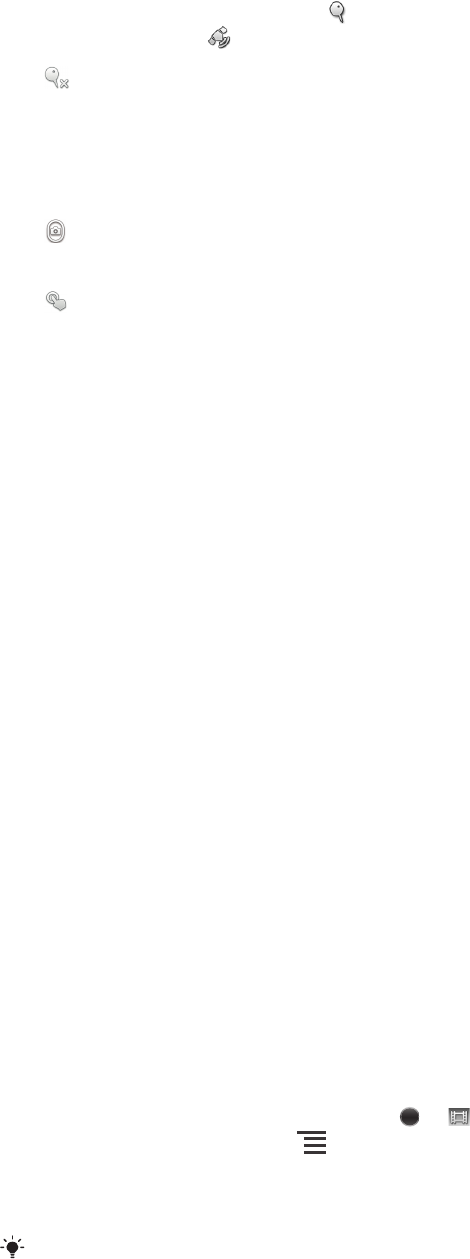
See Using location services to find your position on page 110.
For geotags to be added to a photo, the location must be determined before you take the photo.
Your location is determined when appears on the camera screen. When the phone is searching
for your position, appears.
Off
When geotagging is turned off, you cannot view the location where you took a photo.
Capturing method
Select the method you use to take photos.
On-screen button
Take a photo by tapping the on-screen button on the camera screen. The photo is taken as soon as
you release your finger.
Touch capture
Identify a particular focus area by touching the camera screen with your finger. The photo is taken
as soon as you release your finger. This applies only when focus mode is set to touch focus.
Quick launch
Tips on using the camera
Rule of thirds
Don’t place your subject in the middle of the frame. By placing it a third of the way in,
you achieve a better result.
Hold it steady
Avoid blurry photos by holding the camera steady. Try to steady your hand by leaning
it against a solid object.
Get closer
By getting as close as possible to your subject, you can fill the camera screen view
with your subject.
Consider variety
Think about different angles, and move towards the subject. Take some vertical
photos. Try different positions.
Use a plain background
A plain background helps highlight your subject.
Keep your lens clean
Mobile phones are used in all kinds of weather and places, and carried in pockets
and bags. This results in the camera lens becoming dirty and covered with
fingerprints. Use a soft cloth to clean the lens.
Using the video camera
To record a video by tapping the screen
1
Activate the camera.
2
If the video camera is not selected, drag to .
3
To display all settings, press .
4
Tap Capturing method > Touch capture if it is not already selected.
5
Tap the camera screen to start recording.
6
Tap the camera screen to stop recording.
Shoot your videos in landscape orientation to get the best results.
91
This is an Internet version of this publication. © Print only for private use.
